John was sent by God like the great prophets of the Old Testament, a righteous accuser, warning of the approaching fall of the Orthodox Empire and the end of the world, calling to repentance. This is the second and final part of an article [1] examining Saint John and the epoch in which he lived.
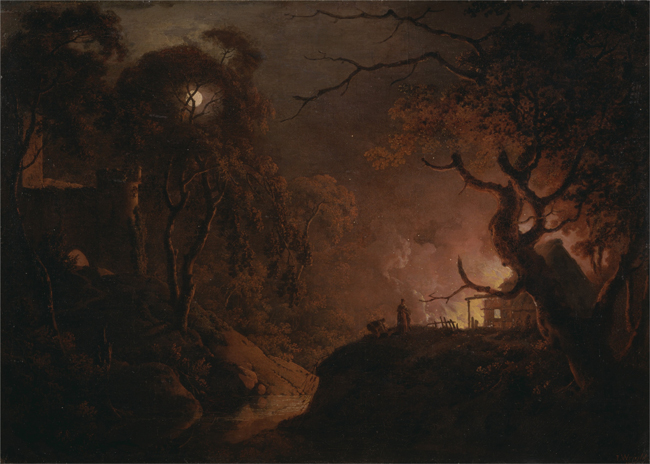
II – The Prophetic office of Saint John
How often would I have gathered thy children together, even is a hen gathereth her chickens under her wings, and ye would not!
Matthew 23 [2] 37
The 19th century and the beginning of the 20th saw more than the flowering of monastic asceticism; it was an epoch of rebirth in every area of Russian life. In Church art, after a period of decadence, could be observed a turn to fine ancient examples. I he higher ecclesiastical schools freed themselves from foreign, non-Orthodox influences and entered upon an independent path. An independent theological science was established. Thanks to a series of Orthodox emperors, there was restored the canonical function of the monarch as the true son of the Church and the guardian of Orthodoxy. The Synodal organization of the Church introduced by Peter the Great was destined to end, and the course was sec toward restoration of the Patriarchate. In everything an upward movement could be felt. Russia was heading with rapid steps toward a blossoming of culture, toward the peak of her fortune, power, and glory.
But simultaneously with the creative, constructive forces there was a development of centrifugal, destructive forces. The overwhelming majority of Russian society was infected by that pernicious atheistic, revolutionary spirit, coming to us from the West, which was so brilliantly depicted in Dostoyevsky’s Possessed (The Demons). Together with atheism, moral decay was rapidly spreading Even some of those who were on the side of the destructive forces sensed at times the dead-end to which the leftist intelligentsia had come, taking the whole of Russia with them.
A vivid description of what was happening in Russia at the end of the last century was made in 1901 in the magazine The Pilot by the remarkable contemporary of Fr. John, Archbishop Amvrossy of Kharkov (1820–1901), in a whole series of essays written with presentiment of his imminent death, which indeed soon followed.
“What can one say of our so-called light literature,’’ said this starets and archpastor, “which is so eagerly spread among the people? It is the vehicle of light-minded and talentless works which pervert the people’s taste and disaccustom them from serious spiritual reading.
“And what does our educated society have to offer, they who so love to make free and self-confident judgements concerning every question and contemporary event? —Nothing but a market-place, where every kind of cheap liberal idea and opinion is offered and exchanged… Someone must open the eyes of these careless and blinded people, who are going to their destruction and drawing after them a great people!
“I am an old man, over eighty… I have seen with my own eyes all the reforms of the past century, both the fortunate and the unsuccessful… I have seen the rapid change in popular morals and am amazed how these thinking people of ours do not notice the decline of our people from that firm intellectual and moral peak on which our ancestors stood, do not see how we are being robbed of our spiritual powers, bow the purity and order of our family life and our simplicity and modesty of manners are being lost… Our higher and leading classes are nourished by a spirit of unbelief and renunciation of the teaching of Christ. They are being lost for the Church and arc breaking away from the millions of Orthodox people, for whom we should be leaders. By their unbelief and liberalism they infect the half-educated clerks, merchants, shopmen, all the way down to the district scribes.”
Metropolitan Philaret of Moscow (1783–1867) likewise foresaw, long in advance, the terrible future of Russia. Bishop Leonid Krasnopevtsev relates this in his memoirs. “Once,” he writes, “the Metropolitan said to me that he felt that the future was covered with dark clouds, and that when the storm broke the people would be so deeply shaken by its blows that they would forget all that had preceded the storm.” Two months before his death he told the Rector of the Sergieva Lavra that he saw in the future “a terrible storm that will come to us from the West.”
The approaching downfall and its causes were seen also by an elder contemporary of Fr. John—Bp. Theophan the Recluse (1815–1894); still in the sixties and seventies of the last century he said: “They have sunk in the Western mire up to the cars, and they think: all is well! … In a generation, perhaps in two, our Orthodoxy will evaporate… Why did the French come to us (in 1812)? God sent them to uproot the evil which we had also learned from them… Such is the law of God’s justice: one is healed of sin by that which attracted one to it.”
Even earlier warnings about the Divine chastisement that was moving upon Russia were given by our great ascetics and saints, such as St. Seraphim of Sarov, Fr. Illiodor of the Glinskaya hermitage, who had a well-known vision of the approaching fate of Russia, and also the Startsi of Optina, among others. Our great writers and thinkers, such as Dostoyevsky, also foresaw and spoke of this; as did K. N. Leontiev, who clearly pointed out the causes of the fall; and even before any of these there were the forebodings of I. Kireyevsky.
Among the contemporaries of Fr. John many saw and spoke about the downfall and fought against it, but louder than any other resounded the accusing and prophetic voice of Fr. John. He bore on himself the whole weight of the prophetic office.
An attack of malice and hatred was launched against Fr. John with exceptional force in the days of the first revolution (1905), when he openly and sharply stood up against it and broke off with the leading society. Insults and physical threats against him went so far that Fr. John was in constant danger. A society was formed for his defense, under the presidency of Metrop. Makary of Moscow. At that time a whole constellation of “leading” writers mocked the Church and the government, striving to outdo each other in their blasphemies and mockery. But Lev Tolstoy surpassed them all. Here is what Fr. John had to say of him: “Look at these insolent revilers today: Tolstoy and all his adherents and followers, real antichrists, liars, according to the Apostle John: Who is a liar but he that denieth that Jesus is the Christ? He is antichrist that denieth the Father and the Son [1 John 2 22][3].”
Turning to the learned, Fr. John threatened them prophetically: “From the elevation of your platforms you are disdainful of the Lord God, His Word, not noticing that your perdition does not sleep. The Lord will scatter you. He will scatter you in such a way that no one will even know where your bones lie.”
In entreaty Fr. John turned to the Russian people:
“Learn. O Russia, to believe in the God Almighty Who rules the world by His decrees, and learn from your holy forefathers faith, wisdom, and courage.” “The Lord has entrusted us, Russians, with the great, saving gift of Orthodox-faith… Arise, O Russian man! … Who has taught you disobedience and insane rebellion, such as never were in Russia?”
“…What will finally come of the disorder that exists in our lives? Lawlessness spreads over the earth; the kingdom of the enemy extends itself, while Thy Kingdom diminishes; few are Thy chosen ones, in whose hearts Thou dwellest, while many are the slaves of the devil, in whose hearts, like a thief, the immemorial killer of men takes his seat. What art Thou doing with us, O Lord? The blood of Thy Testament cries out from the earth, but Thy evangelical voice does not penetrate to the hearts of Christians. Thy Commandments are neglected, the Church statutes are trampled underfoot—what hast Thou done with us, O Lord?”
In 1907, when everything was completely calm in Russia, Fr. John, seeing the general unfeelingness and lack of repentance, penetrated with prophetic vision to the imminent suffering of the Russian people; and the holy Starets, weighed down by severe infirmities, being himself at the edge of the grave, prophesied sternly many times in church, and in a transport of ardent compassion he no longer spoke, but shouted, raising his hands high:
“Repent: a terrible time is at hand, such as you cannot even imagine!”
“The impression was striking; terror took possession of those who were present, and the church resounded with weeping and wailing. My wife and I”—says Sursky[4]—“were perplexed: what would it be? War? Earthquake? Flood? By the power of the Prophet’s words, however, we understood that it would be something much more terrible, and the supposition occurred to me that the earth’s axis was about to shift.”
“The people of the world before the Flood”—said Fr. John—“were given 120 years for repentance, and they were warned that for their sins there would be chastisement from God—the Flood. Time passed, and people became depraved; they did not think of repentance and did not believe the preacher of repentance, the righteous Noah—and the word of God was fulfilled exactly. The Hebrews did not believe the Prophets, who said that they would be taken captive by the Babylonian king; and so they continued to worship idols—and went into captivity, and Jerusalem was laid waste, and all its wealth passed over to Babylon. The Jews of the time of Jesus Christ did not believe in Christ as Messiah and put Him to death on the Cross, and the prophecy of Christ about Jerusalem was soon fulfilled, the Romans exterminating the Jews without mercy.
‘So, today also, the people have lost their senses; they do not listen to the lamentation of the Church, they say—it is all fairy-tales, the priests deceive us for their own profit. “O blind men, O stiff necked and uncircumsized of heart, do you not see before your very eyes the events foretold by the Gospel and now being accomplished? Here is internecine war, famine, plagues. Will you not believe in Divine Justice even now? Know, then, that judgement is at the doors and that the Lord is soon coming in glory to judge the living and the dead!” [2 Tim. 4 1] [5]
As in antiquity the Lord sent prophets to call to repentance, so now also, in the age of the Russian people’s apostasy from God, a great prophet was sent to them, and he confirmed his foreknowledge of the coming Divine chastisement by innumerable examples of clairvoyance and by miracles. But the Russian people did not listen to the Prophet’s call, and thus its fate became inevitable.
The path to the rebirth of Russia, as also to the personal salvation of each of us, was pointed out by Fr. John; and this is the only path, there is no other.
EPILOGUE
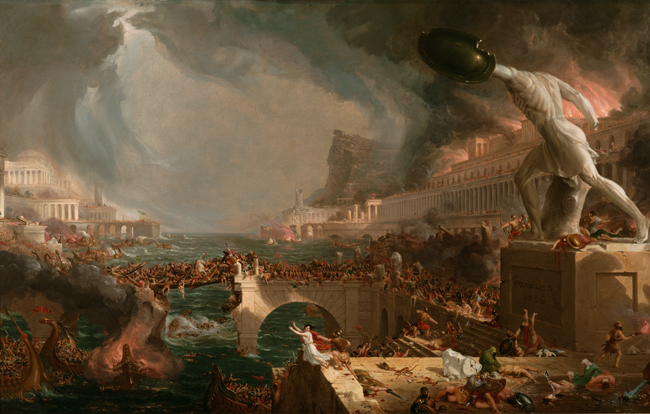
And their eyes they have closed, lest they should see with their eyes, and hear with their ears, and understand with their heart, and should be converted, and I should heal them.
Matthew 13 15 [6]; Isaiah 6 10 [7]
As has already been said, Fr John stepped forward openly against the Revolution, in defense of faith and throne As is veil known, he solemnly blessed the banners and standards of the Russian People’s Union and became an honorary member of it.
In a book about Fr. John the words of Archpriest Sergv Chetverikov are cited, where, speaking of these “faults” of Fr. John, he continues: “But all these “faults” of Fr. John, if such they be, do not in the least darken his pure and attractive spiritual face” And then Fr. Chetverikov condescendingly forgives these “faults”: “In one’s appraisal of Fr John one must stand above all these external and accidental sides of his life.”
Thus, in the eyes of Fr. Chetverikov, the whole prophetic office of Fr. John is no more than an “external and accidental side of his life.” Here Fr. Chetverikov appears as a representative of leftist society and expresses its sympathetic attitude toward the Revolution.
A man of leftist convictions by the very orientation of his soul cannot penetrate to the essence of sanctity. The state of grace of a God-inspired prophet, who sees all in a true light and speaks nothing of his own, but only what God inspires in him—is closed to the understanding of such a man.
The prophecy of Fr. John has been fulfilled exactly, but their eyes they have closed, lest they should see with their eyes, and hear with their ears, and understand with their heart, and should be converted, and I should heal them.
The rebirth of Russia is possible only through repentance; stubborn persistence in the sin of revolution will prevent our return to the homeland.
The Prophets of God raise the dead
The preaching of God’s great prophets is confirmed by the testimony of their miracles
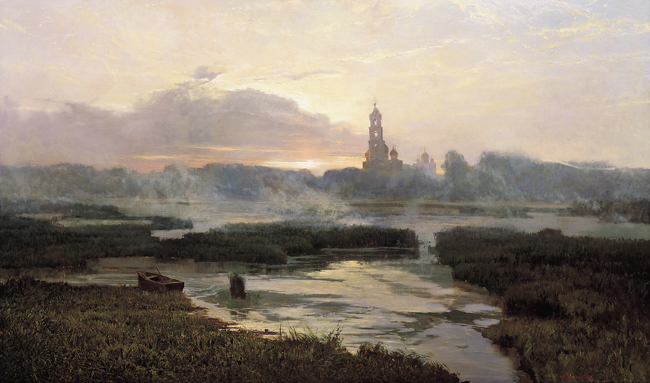
And Elisha went into the house, and behold, the dead child was laid upon his bed. And Elisha went in, and shut the door upon themselves, the two, and prayed to too Lord. And he went up, and lay upon the child, and put his mouth upon his mouth, and his eyes upon his eyes, and his hands upon his bands, and bowed himself upon him, and the flesh of the child grew warm… And he bowed himself on the child seven times; and the child opened his eyes… And Elisha said, take thy son. And the woman went in, and fell at his feet, and did obeisance bowing to the ground; and she took her son, and went out.
The wife of O., while preparing to bear her fourth or fifth child, was taken severely ill. Her doctors determined that the foetus had died and that a Caesarean section was required to remove it. But first the family sent a telegram to Fr John of Kronstadt, whom they knew Fr. John replied: “Leaving immediately, praying to God. John Sergiev.”
“The next day about noon he entered the O. apartment, where by that time a whole crowd of relatives and friends had gathered. “Where is Liza?” Fr. John asked, entering the drawing-room with his customary rapid gait. “Take me to her, and all of you remain here quietly.”
“Fr. John entered the adjoining bedroom and closed the heavy doors after him. Minutes passed, that seemed like half-hours. In the drawing-room it was as quiet as a burial vault. And suddenly the bedroom doors were flung open with a loud noise. In the doorway stood a gray-haired old man in a priest’s cassock, over which he had on an old stole, with a thin, dishevelled gray beard, with an extraordinary face that was red from the intense effort he had exerted at prayer and covered with great drops of sweat. And suddenly there almost thundered from Fr. John fearful, terrible words, words that came from another world. “The Lord God has been pleased to work a miracle! He has been pleased to resurrect a dead child in the womb! Liza will bear a son! …”
“ “It’s incomprehensible!” said, excitedly, one of the doctors who had come for the operation, just two hours after Fr. John had left. “The foetus is alive… I don’t understand a thing about it, not a thing… I affirmed and affirm now that the foetus was dead and that blood-poisoning began long ago.” The other doctors understood no more.
“The same night Mrs. O. was successfully and quickly delivered of a perfectly healthy boy.”
Eugene Vadimov (Sursky, op. cit., pp. 244-6).
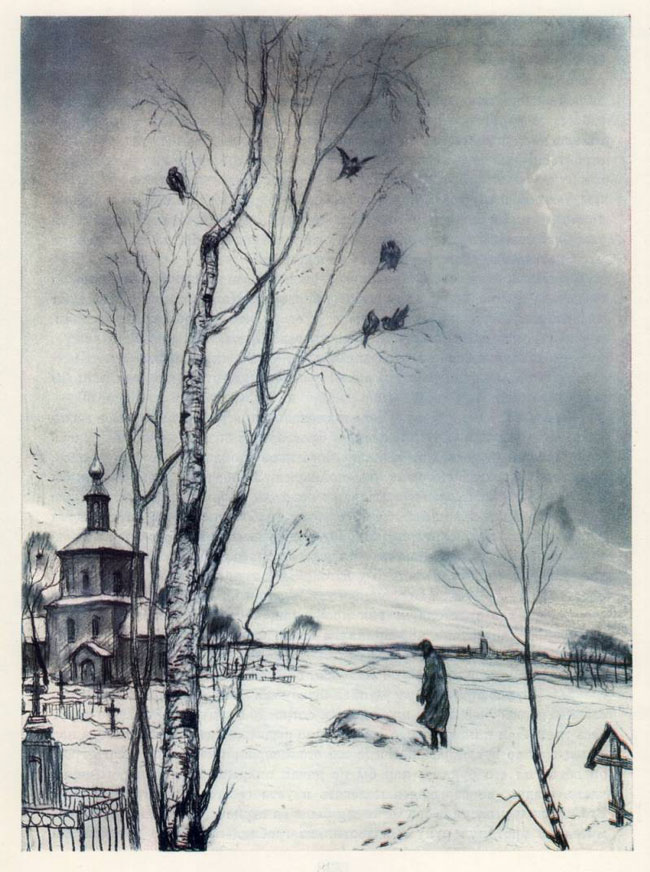
[1] From the Jubilee Anthology (1908–1958) published by The Memorial Fund of Sr. John of Kronstadt, Utica, New York. Copyright 1958; translated with permission (somewhat abridged). The first part appeared in vol. 1, no. 2, of The Orthodox Word.
[2] Ye serpents, ye generation of vipers, how can ye escape the damnation of hell? Wherefore, behold, I send unto you prophets, and wise men, and scribes: and some of them ye shall kill and crucify; and some of them shall ye scourge in your synagogues, and persecute them from city to city: That upon you may come all the righteous blood shed upon the earth, from the blood of righteous Abel unto the blood of Zacharias son of Barachias, whom ye slew between the temple and the altar. Verily I say unto you, All these things shall come upon this generation. O Jerusalem, Jerusalem, thou that killest the prophets, and stonest them which are sent unto thee, how often would I have gathered thy children together, even as a hen gathereth her chickens under her wings, and ye would not! Behold, your house is left unto you desolate. For I say unto you, Ye shall not see me henceforth, till ye shall say, Blessed is he that cometh in the name of the Lord. Matthew 23 33–39
[3] I have not written unto you because ye know not the truth, but because ye know it, and that no lie is of the truth. Who is a liar but he that denieth that Jesus is the Christ? He is antichrist, that denieth the Father and the Son. Whosoever denieth the Son, the same hath not the Father: (but) he that acknowledgeth the Son hath the Father also. Let that therefore abide in you, which ye have heard from the beginning. If that which ye have heard from the beginning shall remain in you, ye also shall continue in the Son, and in the Father. And this is the promise that he hath promised us, even eternal life. 1 John 2 21–25
[4] I. K. Sursky, Father John of Kronstadt, Belgrade, 1938, 2 vols.
[5] I charge thee therefore before God, and the Lord Jesus Christ, who shall judge the quick and the dead at his appearing and his kingdom; Preach the word; be instant in season, out of season; reprove, rebuke, exhort with all longsuffering and doctrine. For the time will come when they will not endure sound doctrine; but after their own lusts shall they heap to themselves teachers, having itching ears; And they shall turn away their ears from the truth, and shall be turned unto fables. 2 Timothy 4 1–4
[6] He answered and said unto them, Because it is given unto you to know the mysteries of the kingdom of heaven, but to them it is not given. For whosoever hath, to him shall be given, and he shall have more abundance: but whosoever hath not, from him shall be taken away even that he hath. Therefore speak I to them in parables: because they seeing see not; and hearing they hear not, neither do they understand. And in them is fulfilled the prophecy of Esaias, which saith, By hearing ye shall hear, and shall not understand; and seeing ye shall see, and shall not perceive: For this people’s heart is waxed gross, and their ears are dull of hearing, and their eyes they have closed; lest at any time they should see with their eyes, and hear with their ears, and should understand with their heart, and should be converted, and I should heal them. But blessed are your eyes, for they see: and your ears, for they hear. For verily I say unto you, That many prophets and righteous men have desired to see those things which ye see, and have not seen them; and to hear those things which ye hear, and have not heard them. Matthew 13 11–17
[7] And he said, Go, and tell this people, Hear ye indeed, but understand not; and see ye indeed, but perceive not. Make the heart of this people fat, and make their ears heavy, and shut their eyes; lest they see with their eyes, and hear with their ears, and understand with their heart, and convert, and be healed. Then said I, Lord, how long? And he answered, Until the cities be wasted without inhabitant, and the houses without man, and the land be utterly desolate, And the LORD have removed men far away, and there be a great forsaking in the midst of the land. But yet in it shall be a tenth, and it shall return, and shall be eaten: as a teil tree, and as an oak, whose substance is in them, when they cast their leaves: so the holy seed shall be the substance thereof. Isaiah 6 9–13
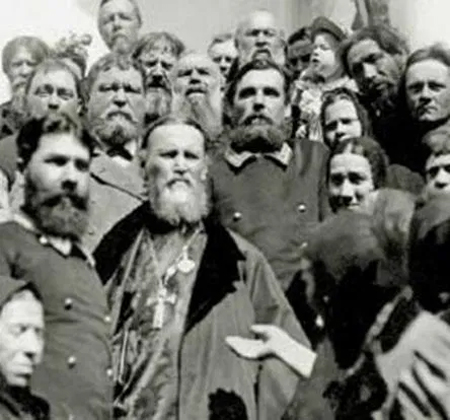
By I. M. Kontsevich
The Orthodox Word, Vol. 1, No. 5, September-October 1965, pp. 171-78
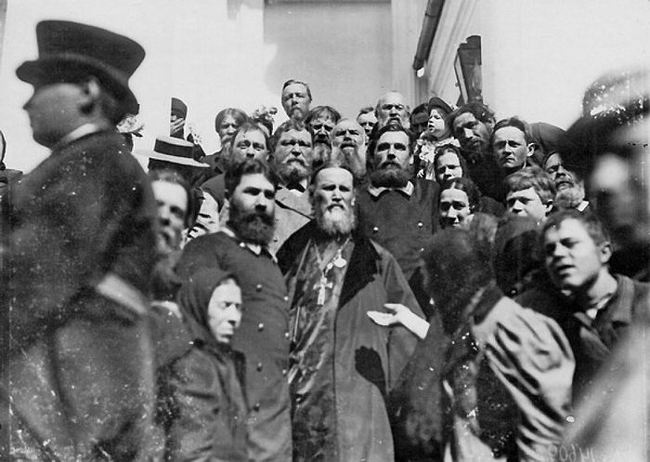
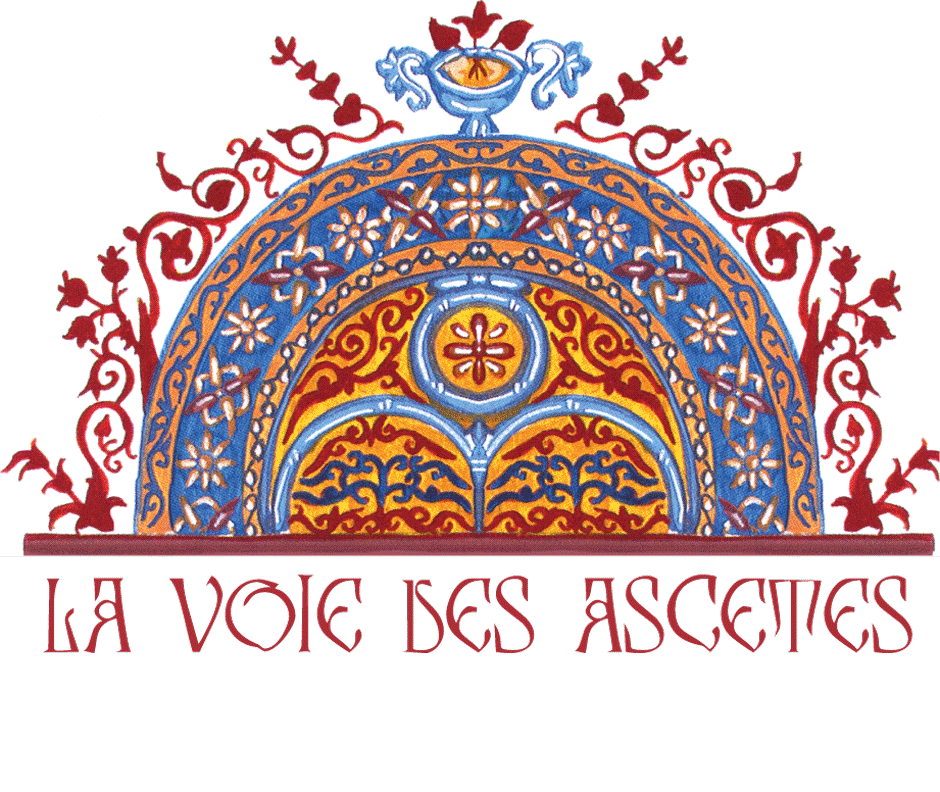
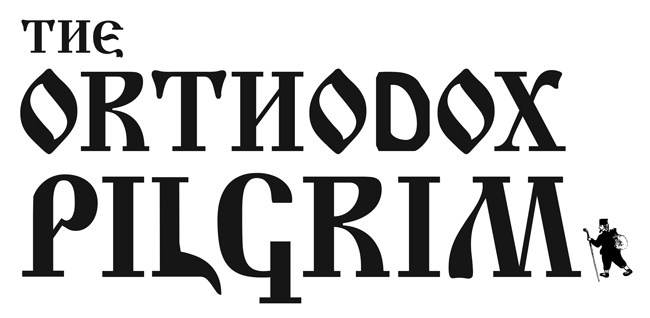
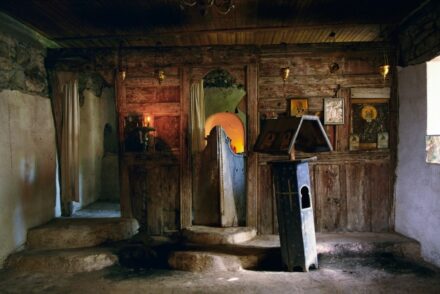
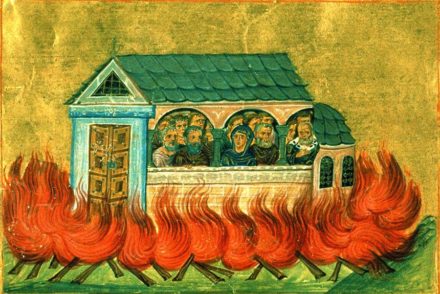
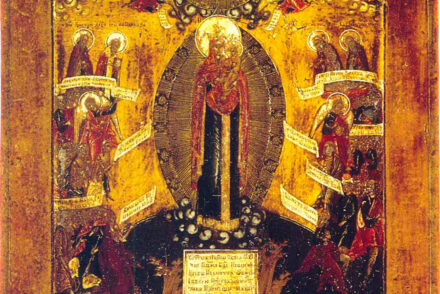
Pas de commentaire